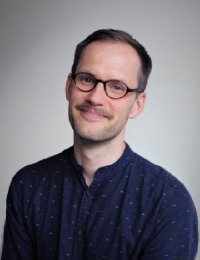Camino
Camino
Camino
Moderation: Prof. Dr. Ulrich Wagner
Philipps-Universität Marburg
Abstract:
Several trends have prompted a reevaluation of traditional urban security methods. These include dwindling confidence in public institutions and democracy, reduced public funding, and the increasing interconnectivity of cities. Recognising the multifaceted nature of crime, security has become more intertwined and complex. The conventional reactive approach to crime, relying on surveillance and deterrence has been questioned for its effectiveness and high costs. Instead, IcARUS advocates for a proactive stance centred on prevention and collaboration among diverse stakeholders. It emphasises crime prevention and the co-production of security as pivotal aspects of urban security policies. IcARUS strives to enhance cities' capacity to anticipate and respond to urban security challenges, develop innovative tools tailored to local contexts, promote multi-stakeholder collaboration, and place citizens at the forefront of urban security policies.

Dr. Britta Elena Hecking ist promovierte Arabistin. Ihre Arbeitsschwerpunkte umfassen neben politischer Bildung und Radikalisierungsprävention, diskriminierungskritische und intersektionale Ansätze in der Stadt- und Jugendforschung. Zu ihren methodischen Kompetenzen gehören insbesondere qualitative Forschungsmethoden. Bevor sie 2021 zu Camino kam, war sie u.a. Projektleiterin bei der Kreuzberger Initiative gegen Antisemitismus e.V. im Bereich der kiezorientierten politischen Bildungsarbeit und Radikalisierungsprävention.

Moritz Konradi ist Politikwissenschaftler (Diplom, Freie Universität Berlin) sowie Kriminologe und Polizeiwissenschaftler (MA, Ruhr-Universität Bochum) und leitet bei Camino Projekte im Arbeitsbereich Gewaltprävention. Bevor er 2020 zu Camino kam, war er Programme Manager beim Europäischen Forum für Urbane Sicherheit in Paris. Bis 2016 arbeitete als Projektkoordinator für Kriminalprävention bei einem Berliner Anti-Gewalt-Projekt und war Lehrbeauftragter am Otto-Suhr-Institut für Politikwissenschaft und an der Berliner Polizeischule. Seine aktuellen Schwerpunkte liegen in der Evaluation und Begleitung von Projekten der kommunalen Gewalt- und Kriminalprävention sowie im Themenfeld Queerfeindlichkeit.

Sarah Vollmer ist Politikwissenschaftlerin (M.A.). Bevor sie 2023 zu Camino kam, studierte sie Angewandte Politikwissenschaft (M.A.), einem deutsch-französischen Doppelstudiengang, an der Albert-Ludwigs-Universität Freiburg und dem Institut d’études politiques in Aix-en-Provence. Als wissenschaftliche Hilfskraft an der Universität Freiburg war sie zwischen 2021 und 2022 unter anderem an der Evaluation des Dialogprozesses Dietenbach beteiligt.

